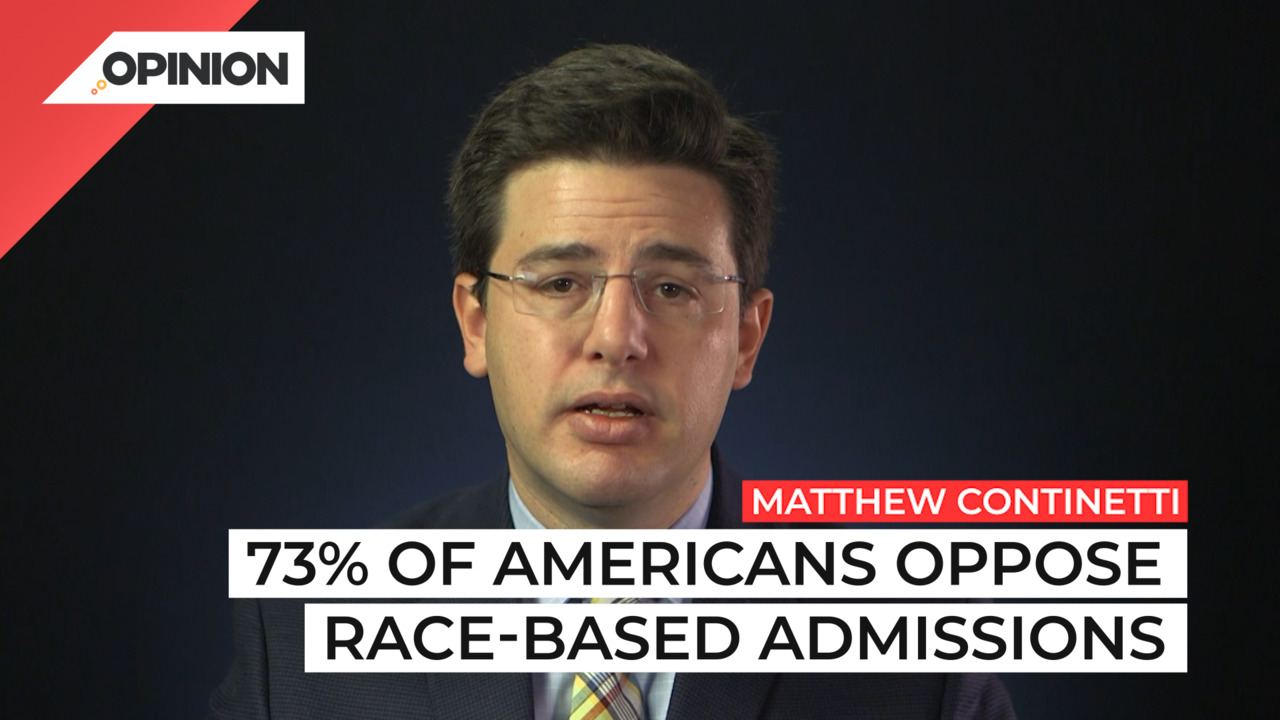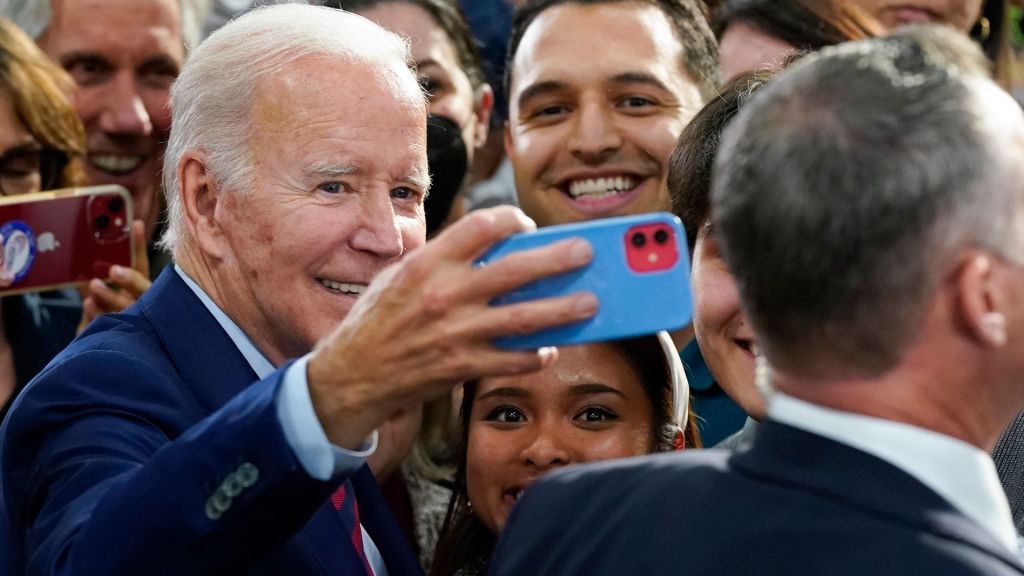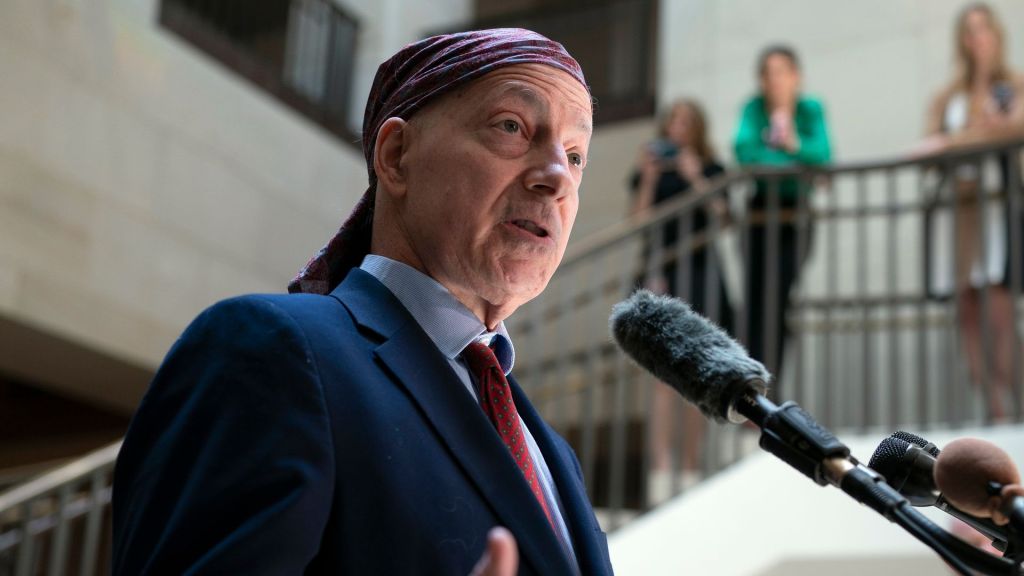
Commentary
-
Our commentary partners will help you reach your own conclusions on complex topics.
In 1978, the Supreme Court ruled that colleges may use race as a factor in student admissions so long as they avoid numerical racial quotas. In 2003, and again in 2016, the Court upheld the constitutionality of preferences to achieve a racially diverse student body. Yet the Court has never seemed entirely comfortable with race-based admissions, for understandable reasons.
Counting by race violates the principle of a colorblind Constitution. It is contrary to the 14th Amendment and to the Civil Rights Act. It’s unfair and unjust and often hurts the very people that it’s trying to help. The Court’s discomfort with racial preferences is no secret. There have been moments when the Court has thrown up its hands and wished the entire problem would just disappear.
In 2003, Associate Justice Sandra Day O’Connor wrote that the Court expected racial preferences to be unnecessary in twenty-five years. Well, time’s up. In October, the Supreme Court heard arguments in two cases where it will decide whether schools such as Harvard discriminate against applicants when determining the makeup of incoming classes.
Unlike before, however, the plaintiffs are non-White. They’re Asian Americans. Also unlike before, the Court is not expected to be mealy-mouthed when it issues its judgment. Hardly anybody in Washington believes that race-based college admissions will withstand the Court’s 6 to 3 conservative majority. Another decades-old precedent may soon be overturned.
The left has treated the affirmative action cases as racial analogues to last term’s Dobbs v. Jackson Women’s Health Organization in which the Court reversed the Roe v. Wade decision and restored abortion law to the states.
After Dobbs, the media portrayed the Court as anti-democratic, counter-majoritarian and contemptuous of public opinion. And they had half a point. The polls really did show that the public was against overturning Roe v. Wade, even if that same public may have misunderstood the holdings in Roe and Planned Parenthood v. Casey, which legalized abortion throughout a pregnancy’s duration.
If the analogy between abortion and racial preferences is an exact, for most of the public, affirmative action is a settled issue. And that settlement, judging from polling data and electoral returns, has been remarkably durable and overwhelmingly lopsided. Americans support general efforts to promote opportunity and inclusion, but they oppose the explicit use of race as a criterion in college admissions, hiring and promotion. The Court won’t be risking a backlash if it ends affirmative action. It will be on the side of the people.
The public has been against preferences since they were first imposed. And today’s anti-preferences coalition includes not just Whites, but also members of racial and ethnic minorities. A Pew Research Center poll from the spring of 2020 found that 73% of Americans did not believe that race or ethnicity should factor into college admissions.
Majorities of self-identified White, Black, Hispanic, and Asian respondents all said race or ethnicity should not be a factor. Pew ran the same poll this year. The numbers have not changed. If Americans truly believed that only race-based policies can bring about a diverse society, then one would expect them to support color consciousness when it is put to a vote.
They don’t. They reject it and not just in red states. In 1996, California voters approved Proposition 209 to ban discrimination by race in public employment, education and contracting. Almost a quarter of a century later in 2020, Californians were asked to vote on Proposition 16, which would have repealed Prop 209.
It lost by a 14-point margin. For too long, the Court has said that discrimination by race is necessary to solve the problem of discrimination by race. The result has been a legal morass, a constitutional tragedy and racial alienation. If the Court fixes its mistake this term, its legitimacy won’t be questioned. Its integrity won’t be endangered. The will of the people won’t be subverted. It will be affirmed.
-
Who will Trump pick for vice presidential running mate?
Donald Trump is now clearly on track to run as the GOP candidate for president in the 2024 elections, regardless of how his various criminal trials proceed. What’s less clear is who else might run as his running mate for the position of vice president. Straight Arrow News contributor Matthew Continetti reviews a list of…
-
Education, income becoming key variables in elections
Education, income level, geography, race and ethnicity are all key variables in estimating who voters might support. But the importance of these variables has changed in recent elections, as America’s demography, culture and political movements continue to evolve. Straight Arrow News contributor Matthew Continetti argues that education and income level have become more important than…
-
If we’re lucky, AOC and the Squad are on their way out
The Squad, comprised of eight left-wing House Democrats, has been openly critical of Israel both before and during Israel’s war with Hamas. As primaries approach, some of these House members are facing challenging political races. Straight Arrow News contributor Matthew Continetti delves into the backlash against the Squad and hopes its members will face a…
-
All bets are off in a Biden-Trump rematch
As the presidential primaries unfold, a Trump-Biden rematch in November appears increasingly likely. History suggests a smooth path to victory for incumbents like Joe Biden, but the scenario becomes far less predictable when that incumbent is running against another former president like Donald Trump. Straight Arrow News contributor Matthew Continetti highlights the rarity of a…
-
If America cuts off Ukraine aid, Putin will never stop aggression
The U.S. Senate is not expected to vote on a package for increased aid to Ukraine until early next year. Since the start of Russia’s full-scale invasion in February 2022, the United States has granted a total of $111 billion in aid to Ukraine, including a minimum of $45 billion allocated for military assistance. The…
Latest Opinions
-
 Getty Images
Getty Images
Biden uses NFL draft ad to try to connect with young voters
-
 Getty Images
Getty Images
Powering pot: Energy for US cannabis industry could electrify 13.5M homes
-
 Getty Images
Getty Images
Allies plan for Trump to have more control over interest rates
-
 Getty Images
Getty Images
FDA: Bird flu found in 1/5 commercial milk samples, suggests greater spread
-
 Reuters
Reuters
China permanently deploys warships to second overseas base
Popular Opinions
-
In addition to the facts, we believe it’s vital to hear perspectives from all sides of the political spectrum.


